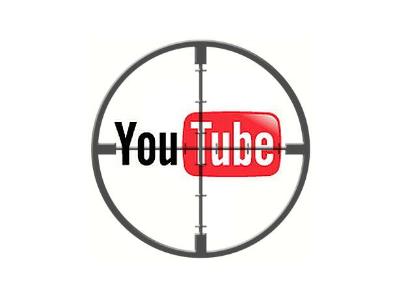Viacom Versus Google: Coming of Age of the "Viderate" Generation

Last week Manhattan district judge Louis L. Stanton filed his opinion in the $1B copyright infringement lawsuit Viacom (VIA) first lodged against Google (GOOG) back in March 2007.
Judge Stanton's decision has already been met with a torrent of criticism across the blogosphere, but what is the broader context of Viacom's complaint? JackMyers Media Business Report spoke exclusively with Andrew Rasiej, co-founder of techPresident. Mr. Rasiej's formidable bio would put him on anyone's short list for a "Chief Technology Officer," should our next president deem such a cabinet position warranted. It is Rasiej's contention that while issues of privacy and piracy must be addressed, that the currentrealignment of power and wealth dictates that aparadigm shift must occur not only in our business models, but in our fundamental mindset. In a wide-ranging conversation Rasiej looks at the general public's standing beyond this affair, as well as the implications for content producers and distributors.
And just what did Judge Stanton opine? While he declined Viacom's request for YouTube's proprietary code, he ordered Google to provide Viacom with userIDs and IP addresses (for unregistered users) as well as three terabytes of video, so that the latter might ascertain if copyrighted videos enjoy the brunt of YouTube's traffic. The Judge's perspective, particularly his viewing any privacy concerns as merely "speculative," has already been met with hostility. Here's the ruling in its entirety.
While the Electronic Freedom Foundation (EFF) has spoken to the legal consequences of the opinion (agreeing with Google that the decision violates the Bork-driven Video Privacy Act of 1988), Rasiej adopts a broader view. Responding to whether or not there's a zero-sum relationship between piracy and privacy, Rasiej won't take the bait. "One person's piracy," he counters, "is another's 'peerocy'" (referring to any peer-to-peer sharing where value is believed to be inherent in the sharing).
As Rasiej sees it, "as the technological revolution continues to advance, we're witnessing a massive clash of norms and behaviors that have yet to be established. The value of information, then, is open to debate and may be worth more in an open network, than in a protected one. People are discovering new ways of creating value by sharing as opposed to holding information back." Noting pragmatically that owners do what they can to preserve their business model Rasiej argues for innovation not only of new models, paradigms, and opportunities, but also recognition of competitive necessities.
Too much of a gentleman to spew crash and burn comments like TechCrunch's Michael Arrington, ("I say this with the utmost respect, but Judge Stanton is a moron.") Rasiej maintains that lawmakers must have a firmer grasp on technology and its potential economic benefits, extending to how it relates to globalization and security in the 21st century. But for now, he has a curt "they don't know the difference between a server and a waiter."
What of our legislators? Rasiej doesn't disagree what's said of politics - that it's a blunt instrument. "Many of our legislator's aides," he asserts, "are still influenced greatly by lobbyists or are writing legislation for the 20th century." Rasiej recently met Sheila Campbell, one of the federal government's 500 IT managers which operate Web sites for the TSA, National Parks Dept., and the FDA, among others. "Do you know why they can't embed YouTube videos on any of their sites?" Rasiej asks. "Because YouTube operates under California's terms of service and the Federal government by law can't be subservient to state law. This policy is being redressed, but it's years in the making."
Unsurprisingly, Rasiej trots out the self-inflicted harm the music industry did to itself. "People found KaZaA not because of any interest in stealing music. CDs were $15, but it was easier to find an obscure single online than to wait for Tower to make it available. Had it taken its entire catalog and make it available online for $30/month, it would have grown its business by three-fold. At the end of the day it's like realigning toll stations or asking horse traders to create legislation for a steam engine."
Far from being a Google apologist (the search engine has come under fire for its lax privacy policies, possibly setting the stage for this legal denouement) Rasiej contends that "mainstream media has never properly written about or grasped Google. It sees that traditional media views it as a major threat and writes about the company accordingly. There are new dynamics to this technological landscape; it's a media ecology undergoing transformation." Responding to the BBC's recent overkill headline over the legal opinion, he suggests that "BBC's headline is not necessarily a premeditated attempt to slander Google, but one of ignorance."
The pending decision, which has a chance of being overturned by the tech savvier judges in appellate court, has given greater voice to calls for a Federal Internet Privacy Act. Rasiej believes this is premature. "I do believe that there's a more important issue before us: To declare access to the Internet a civil, if not a human, right. Right now at $60/month the average working class family can't get online. It's beyond their reach. What's the point in arguing for privacy, if the Federal government hasn't declared access a fundamental service?"
Rasiej closes with a discussion of "Videracy" (as in literacy) -- the talent and skill to create complex ideas without text (Rasiej uses fluency in Final Cut Pro as a rough yardstick). The bias that text reins supreme over image is at an end. "There's an entire generation coming of age in the next twenty years that will be fully viderate," he says. "This presents a challenge to the previous generation that's only twenty percent viderate and the eighty percent that's half-viderate. Much of our content will be created by individuals with simple tools, using simple platforms."
While both Google and Viacom have since stated that they are working towards a compromise (stripping viewer data of unique identifiers by creating randomly assigned ID numbers) that doesn't put our privacy at risk, Rasiej places stock in the Web itself. Referencing Internet pioneer John Gilmore's oft-quoted axiom that "the Net interprets censorship as damage and routes around it," he offers this corollary:"The Net will recognize unreasonable protectionism and route around it as well."


